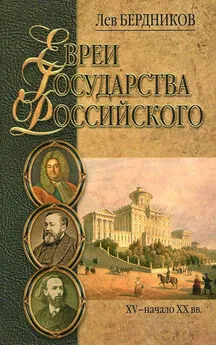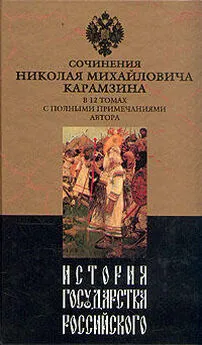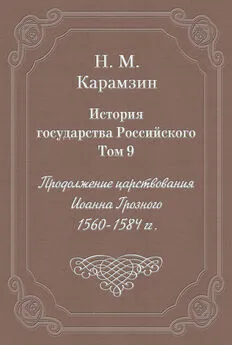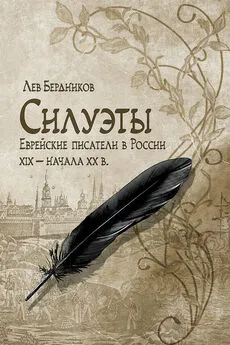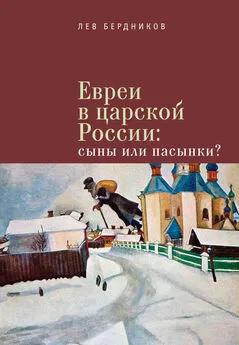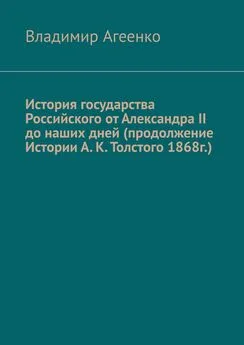Лев Бердников - Евреи государства Российского. XV – начало XX вв.
- Название:Евреи государства Российского. XV – начало XX вв.
- Автор:
- Жанр:
- Издательство:Литагент Спорт
- Год:2011
- Город:Москва
- ISBN:978-5-904885-42-7
- Рейтинг:
- Избранное:Добавить в избранное
-
Отзывы:
-
Ваша оценка:
Лев Бердников - Евреи государства Российского. XV – начало XX вв. краткое содержание
Евреи государства Российского. XV – начало XX вв. - читать онлайн бесплатно ознакомительный отрывок
Интервал:
Закладка:
This book is filled with striking stories about converted Jews who used their privileged position to intervene with the Russian crowned authorities in favor of their fellow countrymen. Thus the Kremlin physician Daniil Gaden obtained permission for Jewish merchants to trade in Moscow, procured commissions for them from court, and received them in his home. The Russian resident in Vienna Avraam Veselovskii convinced Peter the Great, far from well-inclined to Jews, of the high professional qualifications of Jewish specialists; and his brother Isaac Veselovskii, who was the teacher of Grand Duke Peter Fedorovich, did not shy away from trying to convince the imperial judeophobe Elizabeth Petrovna to allow Jews to settle in Russia unimpeded. Similarly precious is the admission of the General-lieutenant of army command Mikhail Grulev, made on the cusp of the nineteenth-twentieth centuries: «The most important thing, that I always held before myself in the light of conscience, was to fight as best I could, passively or actively, against unjust accusations and attacks on Jews. Following both the 'voice of my blood' and the command of my heart, in these cases I also saw my sacred and rational service to Russia, my land of birth, in consonance with duty to conscience and to my vow.»
And how many generations of Russians have listened to the piercing «voice of blood» expressed by Semen Nadson (whose grandfather was Jewish), in particular, to his poem «I grew up, alien to you, outcast people.» This poem had heightened emotional power for Nadson's contemporaries, since the tragic death of the poet himself, defamed by the Jew-hater Burenin and the anti-Semitic Black Hundreds' press, lent his words about «a pack of ravenous hounds» sharpness and topicality. The exceptional popularity of this poet in the late nineteenth century suggests the important role of this work in the battle with anti-Semitism in Russian society of the time.
It is also important that Berdnikov succeeds in remaining faithful to historical truth and contemporary realia, independent of which period is being analyzed. This is all the more important since in several works by Israeli authors attempts are unjustifiably made to present all of our outstanding ancestors as committed advocates of Judaism. Thus one well-known writer describes the following fantastic scene: Allegedly Jews at the court of Peter I, including the tax-farmer Boruch Leibov, who arrived at the Tsar's quarters directly from Smolensk, were gathering together for a Passover seder, and convinced the Russian emperor to don a yarmolka, which he did without hesitation. «Not only is this episode doubtful,» responds Berdnikov, «but so is the very existence of an alleged Jewish party at the beginning of the XVIIIth century, supposedly supported by other co-religionists and firmly united by corporate and religious interests…
In fact, Peter the Great's attitude toward Jews was complex and contradictory. He was a «impulsive pragmatic,» sincere in all of his actions – both when he criticized Jews and when he defended them. The great reformer elevated no few Jews to the highest state positions in the Empire, and they put the interests of their new homeland first, attempting to reconcile them with their national feelings. They often used their blood ties to advance Russian interests, which they served selflessly It is enough to cite the case of the brilliant diplomat Petr Shafirov who saved Russia from slavery and humiliating conditions of defeat when Russian troops were completely surrounded by a far superior Ottoman army twice their size.
Incidentally, it was Safirov who first introduced the word «patriot» into the Russian literary language, which he defined as «son of the Fatherland.» These were not empty words for «Jews in livery.» Many of them served as zealous Russia patriots, combining concern for their people with sincere love for Russia and the Russians. The scholar, naturalist and academician Karl Gablits dedicated himself to Russian science and helped revive the newly acquired territories of Tauride (the Crimea), transforming it into a blossoming land. The first Russian-language Jewish writer, Lev Nevakhovich, author of A Daughter of Judea's Wail (1803), wrote works extolling Russia. The «learned Jew» of the Ministry of Enlightenment, Leon Mandel'shtam, who dedicated his life to the many-sided education of the Jews in Russia, was also a fierce advocate of Russian culture, and became the first Jewish poet to write in Russian. The remarkable Jewish social activist and patron Baron Evzel Ginzburg obliged his descendants to preserve both their Russian citizenship and Jewish faith, and his son Baron Horace Ginzburg earned recognition and love through his philanthropy and defense of the rights of his people, and despite witnessing pogroms and persecutions in his old age, still believed in the future of the Russian Jewish community. And the national Jewish poet, Semen Frug, who was the son of a farmer, earned the respect and admiration of the remarkable Russian writer Nikolai Leskov with his love for the land and his fervent Jewish patriotism.
So-does this mean that the warning «Oh, Jews, don't you sew livery!» was groundless? Unfortunately, not. Berdnikov recounts the fates of many «Jews in livery» that were tragic. In the time of Ivan III the doctor Mistro Leon perished on the scaffold, victim of a cruel conspiracy. And another doctor, Daniil Gaden, falsely accused of black magic, was tortured to death in 1682 by rebellious strel'tsy. The brothers Abram and Fedor Veslovskii were forced to flee the country, and thus became Russia's first non-returning diplomats. Chief of Police Anton Divier was exiled to Siberia. The contractor Abram Peretz, who went bankrupt supplying the Russian army with provisions in 1812, died in poverty. And so on! Even those whose services to the country were truly enormous could be subject to persecutions; thus Petr Shafirov was ultimately stripped of his ranks and medals, as the Senate gleefully recalled that he was of the «zhid breed.»
Several of the heroes of this book were not left in peace even after death. Xenophobic historians with nothing better to do keep silent about the contributions made by Jews to the Russian empire while trying to seek out traces of harmful intrigues hatched by «zhid-masons» and contributing to the most dismal events in Russian history. At times the role of «Jews in livery» is thus purposefully and outrageously exaggerated. By the logic of these learned writers, the dark period under Empress Anna Ioannovna should be called not «bironovshchina» (the time of Biron) but «lipmanovshchina,» after E. I. Biron's close associate, the Jewish banker Levy Lipman, who they say, allegedly ruled Russia. (Berdnikov addresses the falsity and absurd nature of this and other assertions about Lipman's power, demonstrating that he was just another of Biron's many creditors.)
The aggressive search for historically compromising material about Jews is especially zealous and stubborn in the sphere of Russian literature, – more precisely, in the area of Russian poetry. Tendentious literary scholars try to push the idea that it was precisely the Jews who were responsible for the death of great Russian poets, as part of an age-old secret conspiracy against Russia. And it's no problem for them if no evidence exists; it's simple enough to label as a zhid any cheat or scoundrel, especially if murder is involved. Thus the unfortunate Nikolai Martynov who shot the great Lermontov in a duel – so what if he was Orthodox, an aristocrat, officer – but what about that suspicious patronymic «Solomonovich»?! The Russian nationalist has no interest in the fact that during the week of holy forefathers in the Orthodox church in late December newborns were given ancient-Jewish names. So here we have the image of a Russian poet and martyr, killed by evil foreigners – it's even rather appealing. So how can one help but give into the temptation of declaring Solomonovich-Martynov a natural born Jew – and not only to declare it, but make a film about it, one that is very «artistic» and even «enlightening.» And throw into the conspiracy against Lermontov the chancellor Karl Nesselrode, whose mother (we learn from a biographical dictionary) was ethnically Jewish but of the Lutheran faith…
Berdnikov also reveals several well-known Russian political figures in a new and unexpected light. For example, a separate essay is dedicated to the Prince and Field Marshall Grigorii Potemkin, who appears here as a convinced judophile and the first governmental figure in Russian history to support the Zionist idea. For the first time since the destruction of the Second Temple this charismatic figure armed Jews to form the «Israelevskii» Calvary Regiment in 1786. This he proposed to be quartered in previously Turkish-occupied Palestine, where he thought to summon all Jews once more.
But it was to be a vastly longer time until the realization of this plan than he imagined. A huge number of Jews were to continue to live and be absorbed into in the Russian empire, and among them were the heroes of this book. They entered the annals of history and merit our lively and sincere interest today.
Alexander Lokshin, Doctor of Historical Sciences, Leading Researcher, Institute of Eastern Studies, Russian Academy of Sciences«Да молвите Кокосу жидовину от Великого князя»
Хозя Кокос

В царствование Ивана Великого, особенно в первой его половине, иудеи чувствовали себя в Московии весьма вольготно. Им было дозволено «торговлю чинить» и беспрепятственно колесить по городам и весям бескрайней Руси. Повсюду можно было заприметить принадлежавшие евреям повозки, обтянутые парусиной. «Высокие, худощавые лошади нерусской породы, – живописал в историческом романе «Басурман» И. И. Лажечников, – казавшиеся еще выше от огромных хомутин, испещренных медными полумесяцами, звездами и яблоками, давали знать о мере своего хода чудным строем побрякушек такого же металла. На передках сидели большею частью жиды… В тогдашнее время не было выгодной должности, которую не брали бы на себя потомки Иудины. Они мастерски управляли бичом и кадуцеем, головой и языком… Особенно на Руси… во Пскове, в Новгороде и Москве шныряли евреи-суконники, извозчики, толмачи, сектаторы и послы… В авангарде, из-под общипанного малахая и засаленного тулупаторчала, как флюгер, остроконечная бородка и развевались пейсики, опушенные морозом».
«Полезные» евреи отыскивались не только на московских улицах, но и среди лиц, непосредственно приближенных к великому князю Ивану III, который, по словам историка Г. В. Вернадского, относился к иудеям весьма доброжелательно и терпимо.
Читать дальшеИнтервал:
Закладка:
